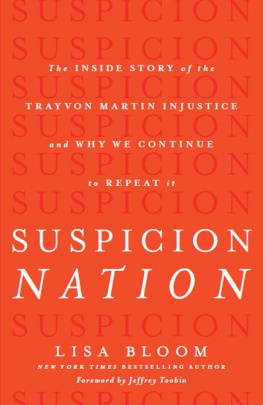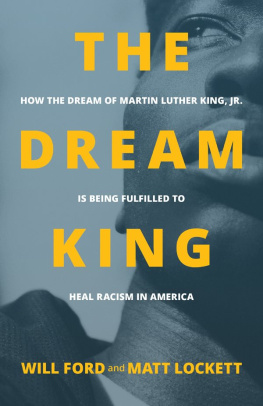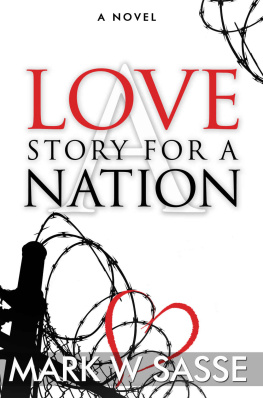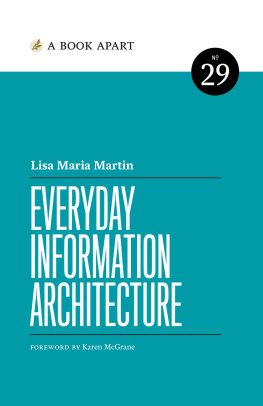Lisa Bloom - Suspicion Nation: The Inside Story of the Trayvon Martin Injustice and Why We Continue to Repeat It
Here you can read online Lisa Bloom - Suspicion Nation: The Inside Story of the Trayvon Martin Injustice and Why We Continue to Repeat It full text of the book (entire story) in english for free. Download pdf and epub, get meaning, cover and reviews about this ebook. year: 2014, publisher: Counterpoint, genre: Detective and thriller. Description of the work, (preface) as well as reviews are available. Best literature library LitArk.com created for fans of good reading and offers a wide selection of genres:
Romance novel
Science fiction
Adventure
Detective
Science
History
Home and family
Prose
Art
Politics
Computer
Non-fiction
Religion
Business
Children
Humor
Choose a favorite category and find really read worthwhile books. Enjoy immersion in the world of imagination, feel the emotions of the characters or learn something new for yourself, make an fascinating discovery.
- Book:Suspicion Nation: The Inside Story of the Trayvon Martin Injustice and Why We Continue to Repeat It
- Author:
- Publisher:Counterpoint
- Genre:
- Year:2014
- Rating:4 / 5
- Favourites:Add to favourites
- Your mark:
- 80
- 1
- 2
- 3
- 4
- 5
Suspicion Nation: The Inside Story of the Trayvon Martin Injustice and Why We Continue to Repeat It: summary, description and annotation
We offer to read an annotation, description, summary or preface (depends on what the author of the book "Suspicion Nation: The Inside Story of the Trayvon Martin Injustice and Why We Continue to Repeat It" wrote himself). If you haven't found the necessary information about the book — write in the comments, we will try to find it.
Lisa Bloom: author's other books
Who wrote Suspicion Nation: The Inside Story of the Trayvon Martin Injustice and Why We Continue to Repeat It? Find out the surname, the name of the author of the book and a list of all author's works by series.
Suspicion Nation: The Inside Story of the Trayvon Martin Injustice and Why We Continue to Repeat It — read online for free the complete book (whole text) full work
Below is the text of the book, divided by pages. System saving the place of the last page read, allows you to conveniently read the book "Suspicion Nation: The Inside Story of the Trayvon Martin Injustice and Why We Continue to Repeat It" online for free, without having to search again every time where you left off. Put a bookmark, and you can go to the page where you finished reading at any time.
Font size:
Interval:
Bookmark:
SUSPICION NATION

Copyright 2014 by Lisa Bloom
All rights reserved under International and Pan-American Copyright Conventions. No part of this book may be used or reproduced in any manner whatsoever without written permission from the publisher, except in the case of brief quotations embodied in critical articles and reviews.
Photo credits: Pages 26, 59 APVideo. Page 58 Istock / RonBailey. Page 61 CrimeTimeVids. Page 114 POOL/Reuters/Corbis. Page 116 JACOB LANGSTON / POOL/epa/Corbis. Every effort has been made to trace or contact all copyright holders. The publishers will be pleased to make good any omissions or rectify any mistakes brought to their attention at the earliest opportunity.
Library of Congress Cataloging-in-Publication Data is available.
ISBN 978-1-61902-391-8
Cover design by Faceout Studio
Interior design by Megan Jones Design
COUNTERPOINT
1919 Fifth Street
Berkeley, CA 94710
www.counterpointpress.com
Distributed by Publishers Group West
10 9 8 7 6 5 4 3 2 1
To my mother, Gloria Allred, In honor of her fervent, relentless, lifelong fight against injustice.
CONTENTS
We are always paid for our suspicion by finding what we suspect.
HENRY DAVID THOREAU

by Jeffrey Toobin
B Y THE STANDARDS of most criminal trials, there were few issues in dispute in the matter of State of Florida v. George Zimmerman. This was no whodunit. The identity of the killer, the murder weapon, the time and cause of deathall were agreed upon by both the prosecution and defense. In that regard, it was a simple case.
At the same time, the Zimmerman trial touched upon some of the most haunting and complex issues in American life. Race, violence, guns, the fairness of the criminal justice systemthese are the subjects at the heart of Lisa Blooms Suspicion Nation. With the mind of a lawyer and the eye of a journalist, Bloom achieves a remarkable double success: meticulously examining the evidence in this case while also placing the whole Zimmerman saga in a broad historical and cultural context.
The heart of Blooms book is her critique of the presentation of the case against Zimmerman by Floridas State Attorneys. There was really only one issue in the trial. What was Zimmermans intent when he fired the fatal shot into Trayvon Martins heart? Did his actions reflect the recklessness necessary to find him guilty of second-degree murder, as the prosecution contended? Or was Zimmerman merely acting in self-defense, as his lawyers maintained? It was not an easy case for either side, and we all now know that Zimmerman was swiftly acquitted. But Bloom argues that the prosecutors could have won this casebut, in simple terms, they blew it. As Bloom writes, The overlooked evidence, lack of witness preparation, and poor strategic choices made by the states attorneys were nothing short of astonishing.
Bloom expertly picks apart the evidence in the case to show the missed chances by the prosecution. Consider one example. In his statements to the police and the news media, Zimmerman asserted that he shot Martin because he believed the young man was reaching for Zimmermans gun. But as Bloom carefully examines the evidence, we see that Zimmermans gun was actually hidden inside his waistbandand behind his back. How could Martin have seen the gun, much less reached for it in a way that prompted Zimmerman to shoot first? Bloom writes, And yet Trayvon, somehow, on that wet, black, low-visibility night, saw through the bulk of Zimmermans body, through Zimmermans shirt, through his jacket to a matte black gun concealed in a matte black holster clipped inside his waistband. Can anyone possibly believe this story? Bloom, for one, clearly does not.
In the end, Bloom places the death of Trayvon Martin in the larger context of the history of race and violence in the United States. She unpacks the story of the Stand Your Ground defense (which Zimmermans lawyers ended up not using) and explores Trayvons own history in the Florida school system as a way of looking at its systemic flawsflaws that are unfortunately shared in many school systems across the country. She looks, too, at another part of the story that is essential but often ignored: the question of gun laws and gun rights. It is a simple truth that Trayvon Martin would be alive today if George Zimmerman did not buy his gun.
Blooms story is about Zimmerman, Martin, and the subsidiary cast of lawyers, cops, and witnesses, as well as her exclusive interview with the one non-white juror sitting on the case, who all became national figures for a brief moment in 2013. But the greatest significance of Suspicion Nation is that it is also about us. As she writes, At the root of all of it is fearoverblown fear of crime, inordinate fear of strangers, deep-seated fear of difference, and in particular, lingering, unspoken fear that African Americans are criminals. So many of us are suspicious. We eye each other warily. And in twenty-first-century America, that fear is often armed, locked and loaded. And so the body count continues to rise, in an atmosphere of lawlessness.
Bloom maintains that our nations biases and cultural blind spots created the conditions that led to the death of Trayvon Martin and made George Zimmermans acquittal the most likely outcome. There is no better way than reading Suspicion Nation to learn how and why this sad story unfolded the way it did.

M ADDY HAD HAD it. The trial wasnt over, but she was out of there. Rules or no rules, she was leaving. If they had to put me in jail for going home, then put me in jail. Three weeks of sequestration with five white women who didnt understand the first thing about her, who demeaned and mocked and trivialized her, was more than enough. As the only minority juror in the nations most watched and most racially charged case in decades, she was done.
As a thirty-six-year-old olive-skinned Puerto Rican woman, Maddy had been doubly lonely since the first week of trial. (Most juries in America have twelve members; Florida has six-person juries in all but death penalty cases, and in this case all six were female.) Judge Debra Nelson had ordered the six women sequestered, requiring them to leave their families for the duration of the trial, booking them in a local hotel under the careful watch of the sheriffs deputies, with occasional phone calls and weekly visits with family members. But Maddy had isolated herself even further, mostly staying in her room, away from the other jurors, securing herself from their words and cruel laughter and judgments about her.
She had no idea how bewildering and hurtful it would all be, nor how huge this trial was for Sanford, Florida, and the nation, which became captivated by the explosive case. On February 26, 2012, the night that Trayvon Martin was shot, Maddy wasnt even living in Florida, but in faraway Chicago, with her husband and seven children. Who had time to watch the news about a crime in a distant state? Between work and raising her family, Maddy was busy. Besides, the news was depressing. She got the weather on her phone, and that was all she felt she needed to know.
Just four months after Maddy and her family moved to central Florida in early 2013, Maddys jury summons appeared. She couldnt believe it. And shed just had a new baby girl. She could have easily evaded jury duty by saying she was breastfeeding, she learned, but she refused to lie, because lying is wrong.
As a nursing home caregiver, Maddy had no experience with the American court system, which seemed alien to her, conducted in a harsh foreign tongue. While being questioned at length by meticulous defense attorney Don West during jury selection, she felt confused and intimidatedWas she on trial? What had she done wrong? Why did he keep asking her what TV shows she watched, what newspapers she read? Was he accusing her of lying? Of being stupid? They made me feel so guilty of something I didnt even do, she said. Only bad people had to go to court, she believedjust being in the courtroom made her feel like she must have done something wrong. I dont know who George Zimmerman is, I really dont! She kept telling them, but they kept asking anyway, the same question from different angles, because they wanted to be sure to seat jurors like Maddy who had not been tainted by pretrial publicity. It was exhausting her. The unnerving way Don West looked directly at her, as if he could read her mindshed never experienced anything like it and hoped never to feel so cross-examined again. He scared the hell out of me. I cried when I came out [of jury selection], she said.
Next pageFont size:
Interval:
Bookmark:
Similar books «Suspicion Nation: The Inside Story of the Trayvon Martin Injustice and Why We Continue to Repeat It»
Look at similar books to Suspicion Nation: The Inside Story of the Trayvon Martin Injustice and Why We Continue to Repeat It. We have selected literature similar in name and meaning in the hope of providing readers with more options to find new, interesting, not yet read works.
Discussion, reviews of the book Suspicion Nation: The Inside Story of the Trayvon Martin Injustice and Why We Continue to Repeat It and just readers' own opinions. Leave your comments, write what you think about the work, its meaning or the main characters. Specify what exactly you liked and what you didn't like, and why you think so.










